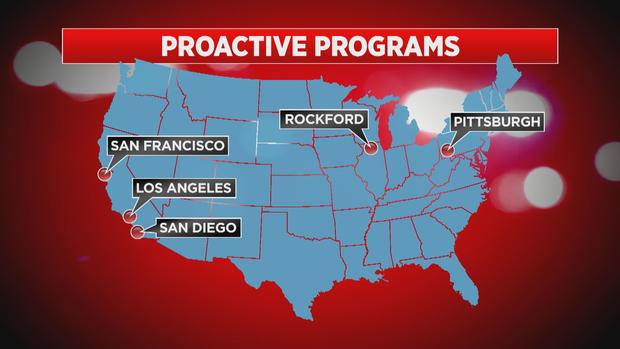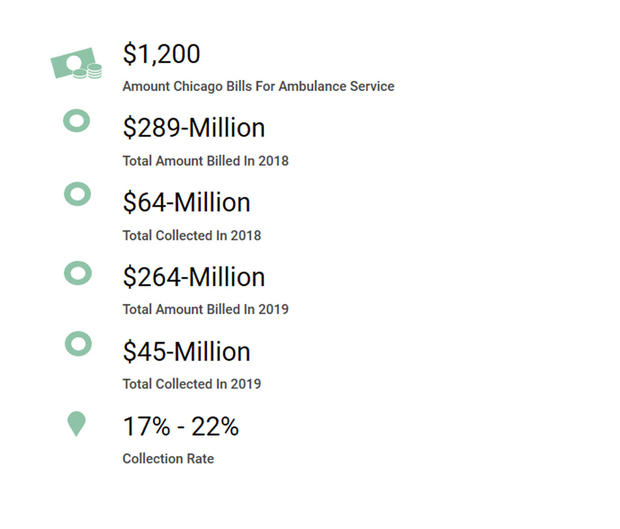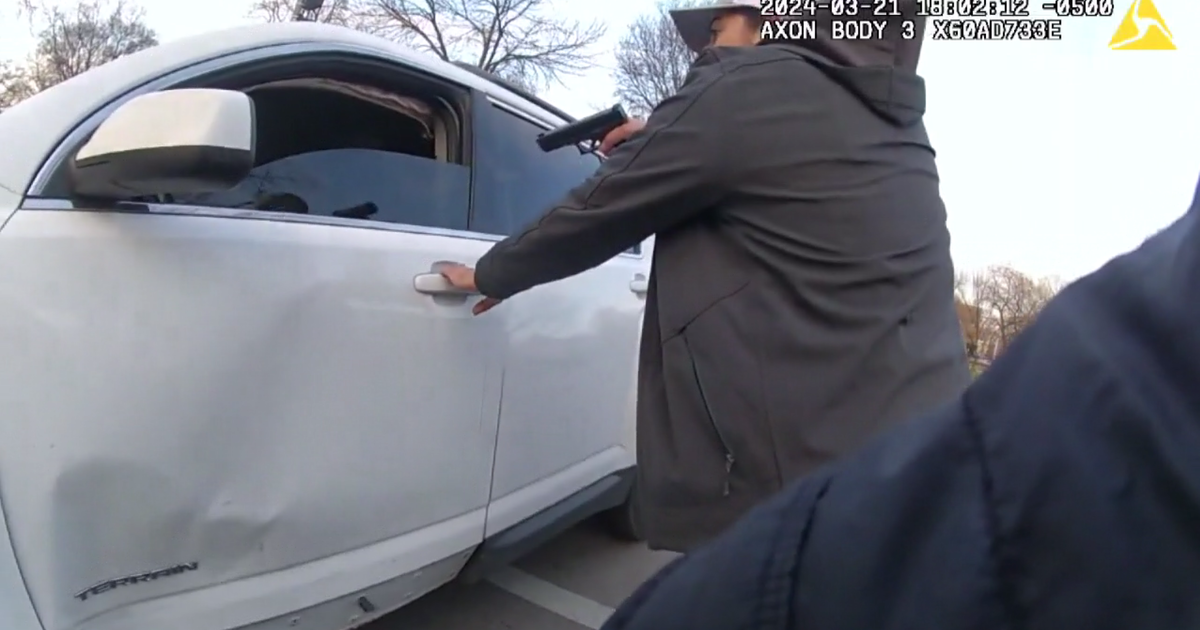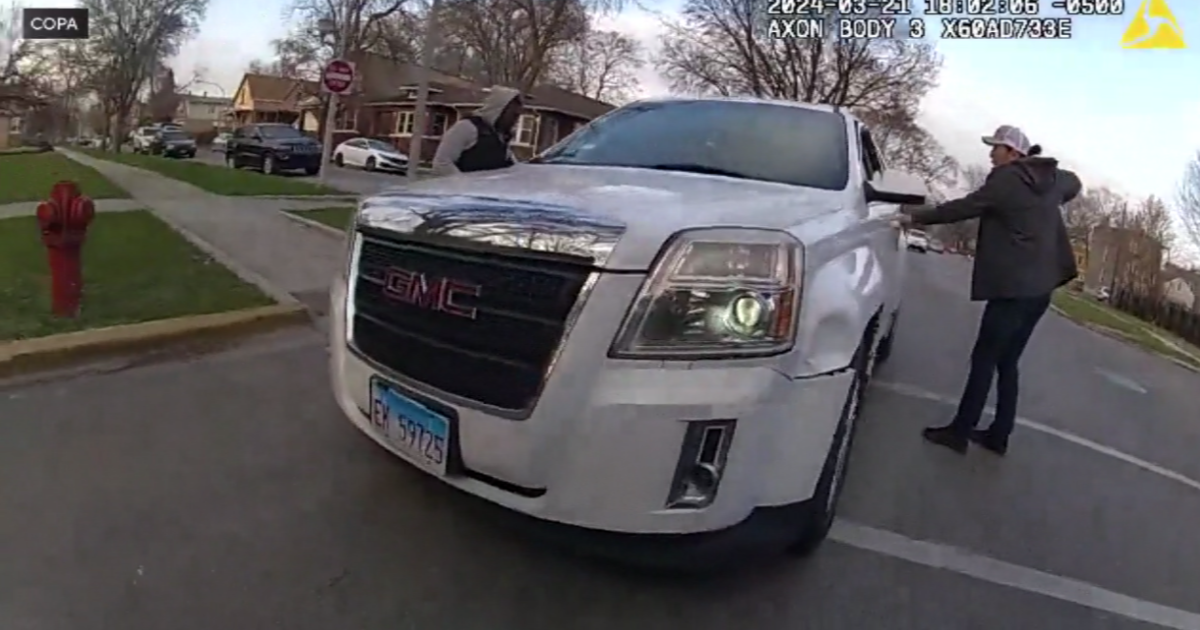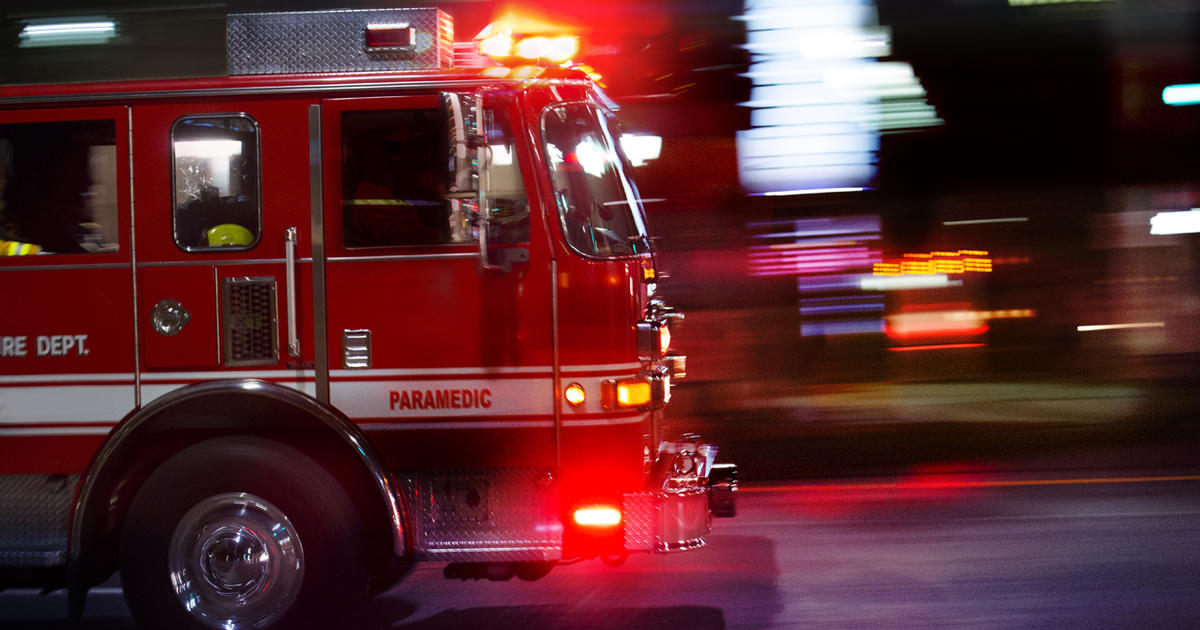Chicago Has Failed To Collect Ambulance Fees, Prevent Misuse Of Ambulances Needed For Emergencies
CHICAGO (CBS) -- Chicago has failed to collect hundreds of millions of dollars in ambulance service fees over the last two years - money that could be used to pay for additional ambulances and paramedics the mayor has promised as a result of CBS 2 investigations.
CBS 2 Investigator Pam Zekman also found the city has failed to implement programs other cities have used to reduce the misuse of ambulances needed for real medical emergencies.
Mayor Lori Lightfoot's pledge came after Zekman's most recent report on a 30-minute ambulance response time for a woman whose daughter called 911 three times fearing her mother was having another stroke, as well as the case of Tina Williams, who bled to death on the steps of her home from an IV port site used for her dialysis treatments.
Williams' family called 911 five times begging for help. An ambulance arrived in 8 minutes, when the city's optimum goal reported to the Illinois Department of Public Health is 6 minutes.
"We know we need more ambulances, and it's my expectation when we finalize a new fire contract, there will be more ambulances coming on line," Lightfoot said at a news conference last month.
But there's no word on how many, when we'll get them, or what can be done about the drain on all city's ambulance resources by so-called "frequent fliers."
Chicago Fire Department officials often blame long ambulance response times on people who repeatedly use them like taxis for services that are not a medical emergency. We found one example at a home in the Belmont Cragin neighborhood where Marisa Diaz lives.
Diaz was the victim of a tragic motorcycle accident years ago. She confirmed in response to Zekman's questions that she has frequently called 911 for ambulance service hundreds of times.
"They come in about 10, 20 minutes after I call," Diaz said. "They're only about half a block away."
The city often sends fire engines with a paramedic on board until an ambulance is available.
Records we obtained show over 18 months fire trucks responded to Marisa Diaz's calls 133 times.
Ambulances responded 204 times, unnecessarily tying up a total of 337 emergency vehicles. That's about four trips a week to Diaz' house.
So why did Diaz call them?
"I have to go to the emergency room depending how I feel," Diaz said. "I'm quadriplegic, and it's hard for me, so I frequently call them for help."
How do they help her?
"They'll come and they'll ask me, why did I call them? And they take my vitals and we'll go," Diaz said. "It's really up to if I want to go or if I refuse the ride."
Diaz ended the interview after Zekman informed her that paramedics believe the city does not have enough ambulances to get to people facing life threatening problems in time to save them.
"We're done here, ma'am," Diaz said. "Thank you."
Paramedic Field Chief Patrick Fitzmaurice has been a vocal critic of the city's ambulance shortage and those who misuse it.
"That's wrong," Fitzmaurice said. "But a bigger problem is we have done nothing about it. We did nothing. We stood by and watched."
Fitzmaurice points to other cities that have implemented programs to cut down on unnecessary calls.
Los Angeles, San Diego. San Francisco, Pittsburgh, and even neighboring Rockford found other ways to help patients like Diaz.
Shannon Kopp heads the Rockford program, visiting frequent ambulance users offering different types of help for people suffering from conditions like substance abuse, mental illness, or age-related difficulties.
"What we wanted to do was decrease the use of the emergency department," Kopp said, "and decrease these use of our ambulances going and picking up these people who could benefit from other resources."
We watched Kopp in action checking up on Ronald and Sharon Bare, a couple who frequently called 911 for help.
"It's helped tremendously," said Ronald Bare. "I don't have to always call an ambulance."
Kopp said that overall, 911 calls by program enrollees have been reduced by 42 percent. She thinks the program would "absolutely" help in Chicago.
"It does free up our ambulances, and it frees up the medics, and so that we're more apt to go or be available for more serious calls," she said.
"Little Rockford - and big Chicago can't do it," Fitzmaurice said. "Everybody's expanding the program that we haven't started."
Chicago has also failed to collect tens of millions of dollars in service fees that could help pay for additional ambulances.
"Part of that budget fix is the money that EMS makes; the revenue we generate," Fitzmaurice said. "More ambulances is an investment that will pay off."
The city bills up to $1,200 for ambulance services.
But in 2018, out of more than $289 million billed, only $64 million was collected. That's just 22 percent.
In 2019, more than $264 million was billed and just $45 million collected - or 17 percent of the total due.
Meanwhile, in response to our ongoing investigation of ambulance response times, Mayor Lightfoot said, "Be assured, we know that we need more."
It's an assurance the Williams' family hopes will prevent future tragedies.
"I blame the city, because if we would have had the proper help, she would have made it," said Arieal Curuth, Williams' granddaughter.
The Fire Department Responds
In a written statement Tuesday, the Chicago Fire Department said it responds to all calls for Emergency transportation but is "exploring opportunities" to create a "Community Paramedicine "program similar to other cities, as CBS 2 disclosed those programs have reduced the strain on their ambulance
fleet by referring non-emergency 911 callers to other services.
"Community Paramedicne is a proven model shown to reduce frequent responses to non-Emergency events" the Chicago Fire department statement said, pointing to successes in Milwaukee. The department is investigating whether "it would be a good fit for our city" and looking for funding sources to
support it.
Meanwhile, the Office of Emergency Management (OEMC) announced Wednesday that it has finalized a $74.9 million dollar agreement with TriTech Software systems to replace its 20 year old Computer aided dispatch system with a new "state of the art" dispatch system designed to improve emergency response times for police, fire, and ambulance services.
The CBS 2 investigators previously reported that the outdated system does not and cannot provide reliable information to analyze response times -- which is critical, experts say.
"Part of the problem is they don't know what the problem is," Carol Davids, a professor of information Technology and management with IIT told cbs2 investigator Pam Zekman. "It's important because we'll be able to save lives," she said. "And the technology exists and enables us to do that."
It will take several years for the new system to be operational, a city spokesperson said.
